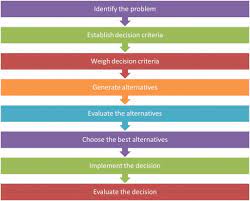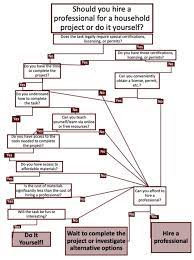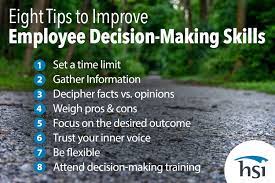Management Decision: The Key to Business Success
In business, decision making is an essential process that determines the success or failure of an organization. Management decision making is a critical aspect of business operations, as it involves choosing the best course of action for the company. In this article, we will discuss what management decision making is and how it can impact business success.
What is Management Decision Making?
Management decision making is the process of selecting the best course of action from among several alternatives to achieve organizational goals. It involves identifying problems, gathering relevant information, analyzing data, and choosing the most effective solution. Management decisions can be classified into three categories: strategic decisions, tactical decisions, and operational decisions.
Strategic decisions are long-term decisions that affect the overall direction of an organization. They involve high-level planning and involve major investments in resources such as people, money or time. Tactical decisions are medium-term decisions that focus on implementing strategies to achieve specific goals or objectives. Operational decisions are short-term decisions that deal with day-to-day activities required to implement tactical plans.
The Importance of Management Decision Making
Effective management decision making is essential for achieving organizational goals and maintaining a competitive advantage in today’s fast-paced business environment. A well-informed management decision can lead to increased productivity, efficiency and profitability for a company.
On the other hand, poor management decision-making can lead to negative consequences such as decreased productivity, lost revenue or even bankruptcy. It is therefore crucial for managers to make informed and well-thought-out decisions based on reliable data and analysis.
Factors Affecting Management Decision Making
Several factors can affect management decision-making processes such as external factors like market trends, competition or economic conditions; internal factors like organizational culture or structure; individual factors such as personality traits or biases; and group dynamics such as communication patterns or conflict resolution styles.
To make effective management decisions, managers need to consider all these factors carefully while weighing their options before making a final decision.
Conclusion
In conclusion, management decision making is an essential process that involves choosing the best course of action to achieve organizational goals. It is a critical aspect of business operations that can determine the success or failure of an organization. Effective management decision-making requires careful consideration of all relevant factors and weighing options before selecting the best solution. By making informed and well-thought-out decisions, managers can lead their organizations to greater success and profitability.
Mastering Effective Management Decision-Making: Answers to 7 Commonly Asked Questions
- How do I make a good management decision?
- What are the key factors to consider when making a management decision?
- How can I ensure that my decisions are well-informed and effective?
- What strategies can I use to help me make better decisions?
- How do I handle difficult or complex decisions?
- What steps should be taken to evaluate the impact of management decisions?
- How can I develop better decision-making skills?
How do I make a good management decision?
Making a good management decision involves several steps that can help you make an informed and effective decision. Here are some tips to help you make a good management decision:
- Identify the problem: The first step in making a good management decision is to identify the problem or issue that needs to be addressed. Clearly define the problem and its impact on the organization.
- Gather relevant information: Collect all relevant information related to the problem, including data, facts, and opinions from stakeholders.
- Analyze the data: Once you have collected all the necessary information, analyze it thoroughly to gain insights into the situation. Use tools like SWOT analysis, cost-benefit analysis, or risk analysis to evaluate different options.
- Consider alternatives: Generate several possible solutions or alternatives to address the problem. Evaluate each option based on its feasibility, effectiveness, and impact on the organization.
- Make a decision: After evaluating all options, choose the best solution that meets your organizational goals and objectives.
- Implement your decision: Once you have made your decision, develop an action plan for implementation. Assign responsibilities and establish timelines for completing tasks.
- Monitor and evaluate your decision: Regularly monitor progress towards achieving your goals and evaluate whether your decision has been effective in solving the problem.
By following these steps, you can make an informed and effective management decision that can lead to positive outcomes for your organization. Remember that making good decisions requires careful consideration of all relevant factors and weighing options before selecting the best solution.
What are the key factors to consider when making a management decision?
When making a management decision, there are several key factors that should be considered to ensure that the decision is well-informed and effective. Here are some of the most important factors to consider:
- Goals and Objectives: The decision should align with the overall goals and objectives of the organization. It should be in line with the company’s mission, vision, and values.
- Relevant Information: Managers need to gather all relevant information before making a decision. This includes data, facts, trends, market research, customer feedback, and other relevant information.
- Alternatives: Managers should consider all possible alternatives before making a final decision. They should weigh the pros and cons of each option and choose the one that best fits their goals.
- Resources: Managers need to consider the available resources such as people, money or time required for implementing the decision.
- Risks: Every decision comes with risks. Managers need to assess potential risks associated with each alternative before making a final decision.
- Stakeholders: The impact of any management decision will affect different stakeholders including employees, customers or shareholders. Managers need to consider their needs and preferences while making decisions.
- Ethical Considerations: Decisions made by managers must be ethical and comply with legal requirements.
By considering these key factors when making management decisions, managers can make informed choices that lead to better outcomes for their organizations while minimizing risks associated with poor decisions.
How can I ensure that my decisions are well-informed and effective?
Making well-informed and effective decisions is crucial for success in any aspect of life. Here are some tips to help you ensure that your decisions are well-informed and effective:
- Identify the problem or decision to be made: Before making any decision, it’s important to identify the problem or decision that needs to be made. This will help you focus on finding the right solution.
- Gather relevant information: Once you have identified the problem or decision, gather all relevant information related to it. This could include data, facts, opinions, and feedback from others.
- Analyze the information: After gathering all relevant information, analyze it carefully to understand the pros and cons of each option.
- Consider alternatives: Consider all possible alternatives before making a final decision. This will help you evaluate different options and choose the best one.
- Evaluate risks and benefits: Evaluate the risks and benefits associated with each option before making a final decision.
- Seek advice from others: Seeking advice from others can provide valuable insights and perspectives that can help you make better decisions.
- Take time to reflect: Take some time to reflect on your decision before taking action. This will give you an opportunity to consider any potential consequences and ensure that your decision aligns with your goals.
By following these tips, you can ensure that your decisions are well-informed and effective, leading to greater success in both your personal and professional life.
What strategies can I use to help me make better decisions?
Making decisions can be a challenging task, especially when there are several options to choose from. Here are some strategies that can help you make better decisions:
- Define the problem: Clearly define the problem or the decision you need to make. Identify what you want to achieve and what factors are contributing to the problem.
- Gather information: Gather relevant information about the issue at hand. Research, ask questions, and gather data to help you make an informed decision.
- Analyze the options: Once you have gathered all relevant information, analyze your options objectively. Evaluate each option based on its pros and cons, and consider how it aligns with your goals.
- Consider the consequences: Consider the potential consequences of each option before making a final decision. Think about both short-term and long-term outcomes.
- Seek advice: Seek advice from others who have experience or expertise in the area in question. This can help you gain a different perspective and provide valuable insights.
- Take time to reflect: Take some time to reflect on your decision before taking action. Consider how you feel about each option and whether it aligns with your values and beliefs.
- Make a decision: Once you have considered all factors, make a decision that aligns with your goals, values, and beliefs.
- Evaluate the outcome: After making a decision, evaluate its outcome regularly to determine if it is achieving the desired results or if adjustments need to be made.
By using these strategies, you can improve your decision-making skills and make more informed choices in various areas of life such as personal relationships, career decisions, financial investments or business operations.
How do I handle difficult or complex decisions?
Handling difficult or complex decisions can be a challenging task, but there are several strategies that you can use to make the process easier and more manageable. Here are some steps you can take when facing a difficult decision:
- Define the problem: The first step in handling a difficult decision is to clearly define the problem or issue at hand. This involves identifying what needs to be decided and what the possible outcomes might be.
- Gather information: Once you have defined the problem, gather all of the information that you need to make an informed decision. This may involve doing research, consulting with experts, or gathering data.
- Identify options: After gathering information, identify all of the possible options for addressing the problem or making a decision. Consider both short-term and long-term consequences of each option.
- Evaluate options: Evaluate each option based on its pros and cons, and how it aligns with your goals and values. Consider factors such as feasibility, cost, impact on stakeholders, and potential risks.
- Make a decision: After evaluating all of your options, make a decision based on what you believe is the best course of action given all of the available information.
- Implement your decision: Once you have made a decision, implement it by taking action to put it into effect.
- Monitor progress: Finally, monitor progress to ensure that your decision is having the intended effect and adjust course if necessary.
It’s important to remember that difficult decisions often involve uncertainty and risk, so don’t be too hard on yourself if things don’t go exactly according to plan. By following these steps and being open-minded about new information or perspectives that arise along the way, you can make informed decisions even in complex situations.
What steps should be taken to evaluate the impact of management decisions?
Evaluating the impact of management decisions is an essential step in determining the effectiveness of decision-making processes. Here are some steps that can be taken to evaluate the impact of management decisions:
- Set clear objectives: Before making any management decision, it is important to set clear objectives that can be used to measure the success or failure of the decision. Objectives should be specific, measurable, achievable, relevant and time-bound (SMART).
- Collect data: To evaluate the impact of a management decision, it is necessary to collect relevant data such as financial reports, customer feedback, employee performance metrics and other relevant information.
- Analyze data: Once data has been collected, it should be analyzed to determine whether the management decision has had a positive or negative impact on the organization.
- Compare results: The results of a management decision should be compared with previous results or benchmarks to determine whether there has been an improvement or decline in performance.
- Identify strengths and weaknesses: Through evaluation, managers can identify strengths and weaknesses in their decision-making processes and make necessary adjustments for future decisions.
- Communicate results: It is important to communicate evaluation results to stakeholders such as employees, customers and shareholders to demonstrate transparency and accountability.
- Continuously monitor and adjust: Management decisions should be continuously monitored and adjusted as needed based on evaluation results to ensure ongoing success.
By following these steps, managers can effectively evaluate the impact of their decisions on organizational performance and make necessary adjustments for future success.
How can I develop better decision-making skills?
Developing better decision-making skills is a valuable skill that can help you in all aspects of your life, from personal to professional. Here are some tips to help you improve your decision-making skills:
- Identify the problem: The first step in making a good decision is to identify the problem or situation that needs to be addressed. Clearly define the issue and determine what information is needed to make an informed decision.
- Gather information: Collect all relevant information about the problem or situation. This may involve research, talking to experts, or gathering data.
- Analyze options: Once you have gathered all relevant information, analyze your options carefully. Consider the pros and cons of each option and weigh them against each other.
- Consider consequences: Think about the potential consequences of each option before making a final decision. Consider short-term and long-term effects, as well as any potential risks or benefits.
- Seek advice: If you are struggling with a decision, seek advice from trusted friends, family members, or colleagues who may have experience in similar situations.
- Make a decision: Once you have analyzed your options and considered the consequences, make a decision based on the available information and your own values and priorities.
- Evaluate results: After making a decision, evaluate its effectiveness by monitoring results over time. If necessary, adjust your approach if it is not achieving the desired outcome.
Remember that developing good decision-making skills takes practice and patience. By following these steps consistently over time, you can improve your ability to make informed decisions that lead to positive outcomes for yourself and those around you.




